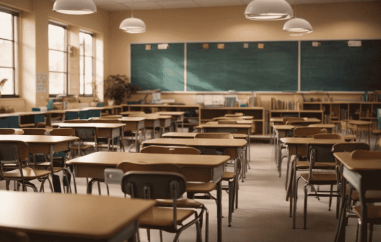Filmfest München rides off into the sunset
The films have all been returned to their canisters and the actors have returned to Hollywood or Berlin or even down the road to Grünwald. Filmfest München has drawn to a close, and once again it was a week to remember. There was glamour, laughter, a few celebrity sightings and most importantly there was some rather serious discussion about film.
It did not always seem like that would be possible. The festival organisers had deemed Tuesday 3 July "Super Tuesday" because, among other things, it was the day Melanie Griffith arrived and received the CineMerit Award. Bavarian Finance Minister Markus Söder was the one to do the honours of presenting her the award in the Carl Orff Saal at the Gasteig. It was hard to believe that less than an hour before a Publikumsgespräch (talk with the public) had almost been shut down because of less than polite behaviour of a handful of photographers.
The daughter of Tippi Hedren, Ms. Griffith has grown up in the limelight, and clearly knew when to turn on the charm. In addition to answering questions about her favourite roles and the directors she had worked with, she was also showered with praise from some rather excitable fans. On the same evening, there was the world premiere of her new film "The Grief Tourist".
The film's director, Suri Krishnamma, informed the audience before the film that the theatre in the Arri Kino was exactly the same one in which he had shown his very first student film twenty-one years ago. "The Grief Tourist", which also stars Michael Cudlitz, deals with a man so fascinated with serial killers that he regularly spends his holidays going to the sites of gruesome crimes. While not for the faint of heart, this is an excellent piece of filmmaking with an unforgettable musical score.
James Franco also made a less than nattily-attired appearance at the Filmfest, and despite some befuddled fans who could barely fathom a real Hollywood star showing up to an event in such a scruffy state, the former soap opera actor confused the audience at yet another Publikumsgepräch. What was comically described as forty minutes of him staring at his hands and mumbling half-hearted responses to questions that were posed by fans, Mr. Franco brought three new experimental films to the festival. One can only hope that there was more to these films, which he himself directed, than the actor talking to his hands.
For this reviewer, the most engaging actor was Julie Delpy. She stormed into her event, and immediately informed the audience that as happy as she was to be showing her films, what she really needed was a new nanny. Apparently she had been left in the lurch by her nanny, and the French star of such films as "Before Sunrise" and "Killing Zoe" was not too proud to beg the audience, as well as the heavens, for any help in what sounded like an impossibly difficult job vacancy to fill.
Although she said that she associated Munich with her visits to see Volker Schlöndorff, she admitted that she was a huge Fassbinder fan and insisted that Munich would always be the "City of Fassbinder" to her. It turns out Ms. Delpy had even more of a connection to the city, as her partner Marc Streitenfeld is originally from Munich and they often visit his family.
Speaking of Rainer Werner Fassbinder, there was quite an homage to the auteur at this year's Filmfest in honour of the thirtieth anniversary of his death. Not only did Ingrid Caven come in from Paris, but there was a who's who of Fassbinder collaborators who arrived to pay tribute. American director Todd Haynes, as well as Hollywood-based German actor Udo Kier each took part in the festivities.
As with any film festival, there were some moments of joy in addition to moments of discomfort. The characters in Alex Ross Perry's "The Color Wheel" were purposely despicable, but it did not make it any easier to watch. Andrew Dosunmu's "Restless City" was an honest portrayal of the difficulties immigrants face in contemporary New York City. In introducing the film, the director said, "You always hear 'black man shot', and I wonder how great he could have been."
There were plenty of films from all over the world, but since this is an English language paper, I purposely sought out films in this language. "When the Lights Went Out" was a British film that took place in early 70s Yorkshire. Even without the gripping story, the realistic cars and home furnishings from that period made the movie incredibly enjoyable to watch. Based on the true story of the Maynard Haunting, which is described as, "one of the most violent in European history," this film is relatively tame by horror film standards. Nevertheless, it is a compelling story of a family who find out their dream house is trying to kill them.
Finally, there almost always has to be a film about the end of the world, and this Filmfest was no exception. Abel Ferrara's "4:44 Last Day on Earth" shows the way a couple in New York City react when they find out a disaster will wipe out everything they know at approximately 4:44 the next afternoon - give or take a few minutes. Starring Willem Defoe and Shannon Leigh, this scenario sounds as if it could only offer gloom and doom, but the story was somehow refreshing.
As much as Munich has to offer, independent film is not something one normally gets here. German films are shown throughout the year, of course, and a handful of art houses still exist. French and other European cinema, as well as unusual documentaries are sometimes shown, but those theatres are off the beaten path.??
The exception to this dearth of independent film is the one week of the year that the Filmfest München takes place. Along with German productions from the smallest to the biggest budgets, including television and even a children's programme, the Filmfest annually offers an impressive selection of international film. This year's Filmfest was no exception. I am already daydreaming about next year's selection.















































